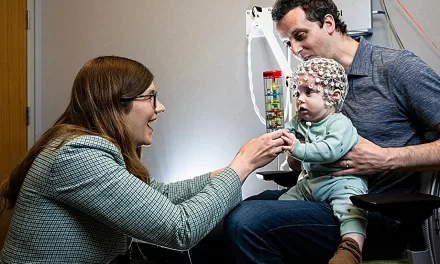A recent study conducted by researchers at Stanford Medicine has shed new light on the implications of staying up late, particularly for night owls. Published in Psychiatry Research, the study surveyed nearly 75,000 adults to investigate the relationship between sleep timing—known as chronotype—and mental health.
Contrary to expectations, the study found that regardless of whether individuals identified as morning larks or night owls, staying awake until the early hours of the morning was associated with higher rates of mental and behavioral disorders. Lead author Dr. Renske Lok and senior author Dr. Jamie Zeitzer emphasized that aligning with one’s chronotype did not mitigate the negative effects of late-night wakefulness.
“We found that it’s not about when you prefer to sleep, but rather, being awake late into the night that poses risks to mental health,” explained Dr. Zeitzer, a professor of psychiatry and behavioral sciences.
The study categorized participants into morning types, evening types, and those in between, and analyzed their sleep behaviors and mental health records. Surprisingly, both morning types and evening types who stayed up late showed increased susceptibility to conditions such as depression and anxiety.
“Our findings challenge the notion that sticking to your natural sleep preferences is always beneficial,” added Dr. Lok. “Night owls were particularly vulnerable when they maintained late-night schedules.”
The researchers also explored possible reasons behind these findings, including the impact of late-night behaviors such as impaired judgment and increased risk-taking. They noted that societal factors and reduced social interaction during late hours might exacerbate these risks.
Dr. Zeitzer recommended an optimal bedtime of no later than 1 a.m., emphasizing the importance of maintaining consistent sleep schedules and exposure to natural light in the mornings. While shifting sleep patterns might be challenging, he highlighted its potential benefits for mental well-being.
Looking ahead, the team plans to delve deeper into specific late-night behaviors and their correlations with mental health outcomes. This ongoing research aims to provide clearer insights into how lifestyle choices during nighttime hours impact overall mental well-being.
As society grapples with increasingly complex sleep patterns and their implications, this study serves as a crucial reminder of the importance of healthy sleep habits for maintaining mental health.
For more information on the study, “Perils of the nighttime: Impact of behavioral timing and preference on mental health in 73,888 community-dwelling adults,” please refer to the latest issue of Psychiatry Research (2024).










